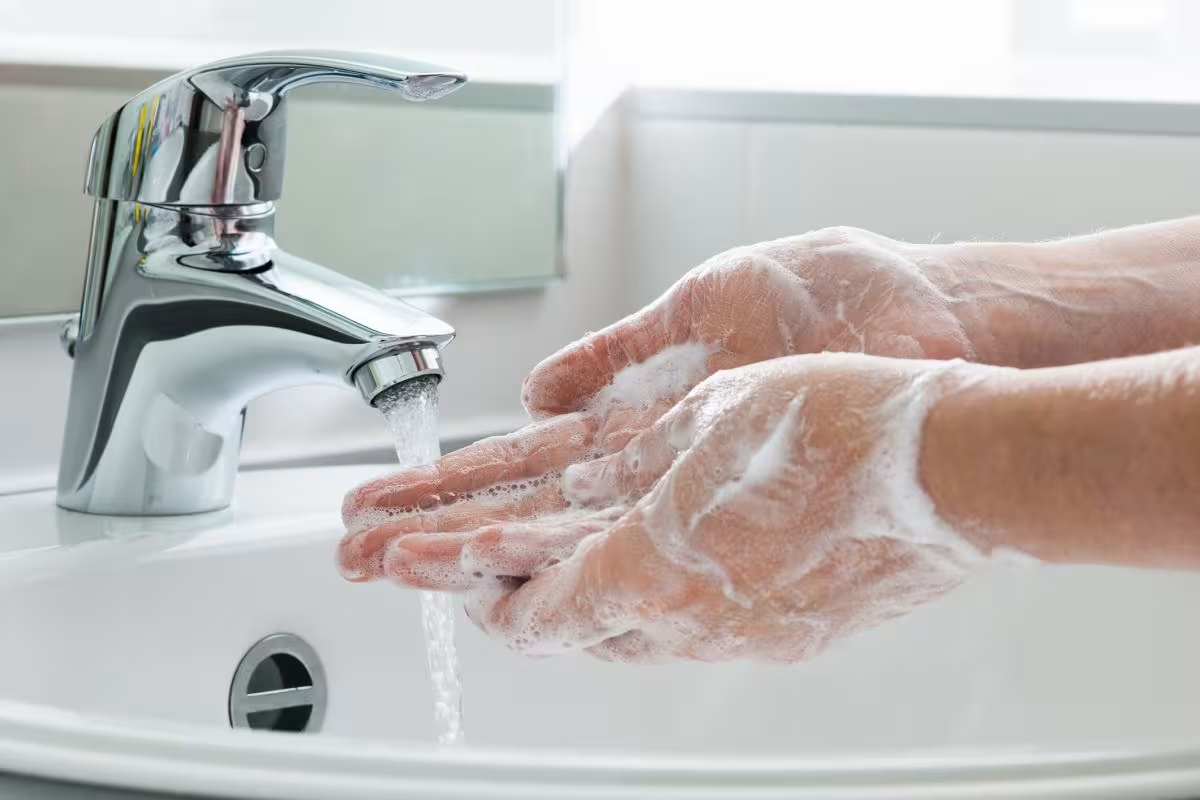
How to say "no" to norovirus in your home
Norovirus has made headlines in our community recently with a cluster of cases at the University of Guelph impacting hundreds of students. Known for its ability to spread quickly in close quarters, norovirus is one of the most common causes of vomiting and diarrhea. Whether you're a student, a parent, or simply preparing for the winter season, understanding how to protect yourself, your family and those around you is crucial.
Let's break down what norovirus is, how it spreads, and most importantly, what you can do to stop it from invading your home.
What Is Norovirus?

Norovirus, sometimes called the “stomach flu” (though it’s not related to influenza), is a highly contagious virus that causes sudden onset vomiting, diarrhea, stomach cramps and occasionally fever or headache. Symptoms usually only last between 12 and 48 hours. It spreads through tiny particles of infected vomit or stool, which can be transferred through:
- Consuming contaminated food or water.
- Touching contaminated surfaces and then your mouth.
- Close contact with someone who is sick.
That’s right, you catch norovirus by accidentally ingesting teeny tiny particles of a sick person’s vomit or stool.

Take Control Against Norovirus
Preventing norovirus requires vigilance, especially if it’s already in your home, school or workplace. Here are practical steps to protect yourself and others.
1. Upgrade Your Cleaning Arsenal
Regular household cleaners, vinegar or essential oils will not kill norovirus – it’s tough. Use a bleach and water solution (1 part bleach to 10 parts water) or an EPA-approved disinfectant.
2. Focus on High-Touch Surfaces

Identify and disinfect frequently touched areas like doorknobs, taps, light switches, phones, bathroom counters and toilets. Follow product instructions for proper “contact time” (how long the disinfectant needs to stay on the surface to work effectively against norovirus).
3. Handle Laundry with Care
Wash soiled clothes and bedding separately using hot water and detergent. Run an empty rinse cycle afterward.
4. Master the Art of Handwashing

Proper handwashing is your best defense. Use warm water, soap, and scrub for at least 20 seconds (sing “Happy Birthday” twice). Pay special attention to under your nails, between your fingers and the backs of your hands.
5. Stay Safe While Cleaning
When cleaning up after someone who is sick:
- Wear disposable gloves and throw them away after use. Avoid skin contact with outside of the gloves when removing.
- Move from the cleanest to dirtiest areas.
- Wash your hands immediately after cleaning.
Keep Norovirus Contained

If you’ve had norovirus, you would agree that you wouldn’t wish it on your worst enemy! So here are some key ways to prevent it from spreading to others:
- If you’re sick, stay home for at least 48 hours after symptoms stop.
- Avoid preparing food for others until symptom-free for two days.
- Wash your hands thoroughly and often, especially after cleaning, using the bathroom, changing diapers and before eating. Use your own towel to dry your hands or use disposable paper towels.
- Avoid public pools, hot tubs and spas until two weeks after symptoms have stopped.
- Disinfect surfaces frequently and handle contaminated laundry with care.
By staying informed and proactive, you can reduce the risk of norovirus in your home, workplace and community. In most cases, norovirus can be managed at home, however, if symptoms are severe, especially in children or the elderly, seek medical care immediately.
Together, we can help minimize the impact of norovirus and keep our community healthy.
